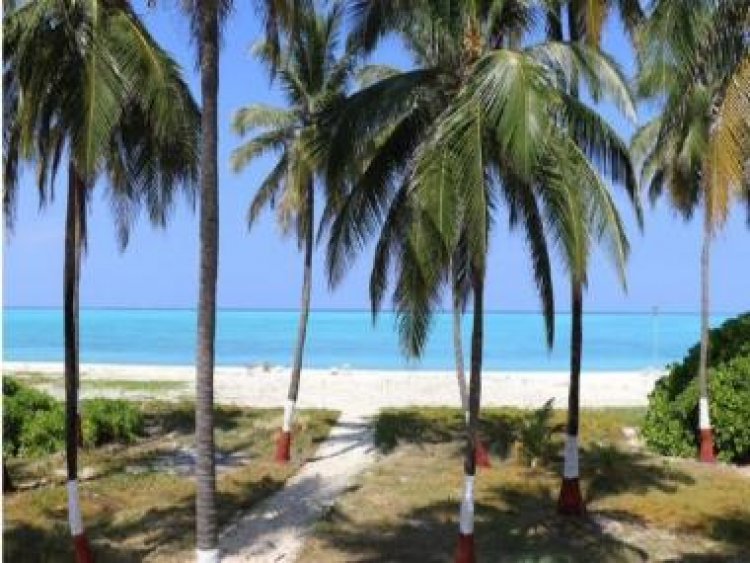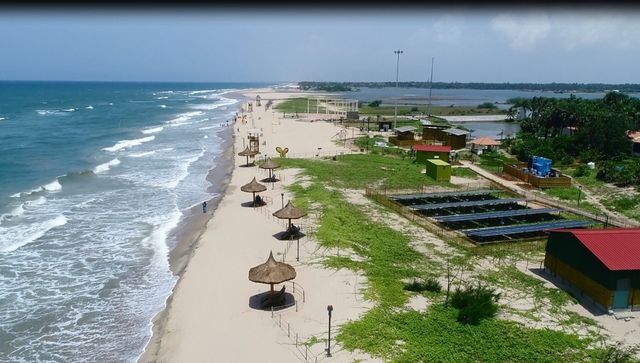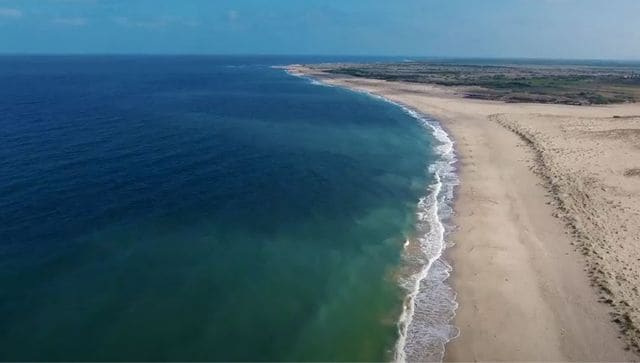‘Blue Flag’ for two more Indian beaches: What’s this certification?
‘Blue Flag’ for two more Indian beaches: What’s this certification?

Two more beaches in India have bagged the coveted ‘Blue Flag’ certification, which is awarded to the cleanest beaches in the world. With this, India now has a total of 12 ‘blue beaches’.
Union Environment Minister Bhupender Yadav took to Twitter to share the news.
“Proud moment! Two more Indian beaches have made it to the list of Blue beaches. Minicoy, Thundi Beach and Kadmat Beach – both in Lakshadweep – are the proud entrants in the coveted list of Blue beaches, an eco-label given to the cleanest beaches in the world,” he wrote on Tuesday (26 October).
Expressing elation, Prime Minister Narendra Modi said, “This is great! Congratulations, particularly to the people of Lakshadweep, for this feat. India’s coastline is remarkable and there is also a great amount of passion among our people to further coastal cleanliness.”
This is great! Congratulations, particularly to the people of Lakshadweep, for this feat. India’s coastline is remarkable and there is also a great amount of passion among our people to further coastal cleanliness. https://t.co/4gRsWussRt
— Narendra Modi (@narendramodi) October 26, 2022
What is the ‘Blue Flag’ certification and what is the criteria to achieve this award? Which beaches in India have been honoured with the tag? We explain.
Blue Flag
The ‘Blue Flag’ certification is an eco-label awarded by the Denmark-based non-profit Foundation for Environmental Education (FEE) to beaches, marinas and tourism boats.
“The iconic Blue Flag is one of the world’s most recognised voluntary awards for beaches, marinas, and sustainable boating tourism operators. In order to qualify for the Blue Flag, a series of stringent environmental, educational, safety, and accessibility criteria must be met and maintained,” says the Blue Flag website.
Launched in France in 1985, the Blue Flag programme has been implemented in Europe since 1987 and in regions outside of Europe since 2001.

The programme advocates sustainable development in freshwater and marine areas through four main categories: water quality, environmental management, environmental education and safety.
The environmental award is given annually to beaches and marinas in FEE member countries.
Currently, 48 countries are a part of the programme and 5,042 beaches, marinas, and tourism boats have been awarded the certification.
Spain has the highest number of Blue beaches with 614 as of 2021, followed by Greece with 545 and Turkey with 519, according to the Guinness World Records website.
What are the criteria to get the award?
There are 33 stringent criteria that the applicants must meet to qualify for the Blue Flag certification.
Let’s look at some of these requirements.
Information about the Blue Flag Programme has to be showcased on the Blue Flag information board. If Blue Flag is temporarily withdrawn, the beach operators are required to inform the public as to the reasons why the flag was taken back.
Environmental education activities which promote the aims of the programme must be shared with beachgoers.
Bathing water quality information is also to be mentioned on the Blue Flag information board.
Information on local eco-systems, environmental elements and cultural sites should also be displayed.
The public should be made aware of the code of conduct that reflects ‘appropriate laws and/or regulations governing the use of the beach and surrounding areas’.
The environment management criteria include keeping the beach and surrounding areas, such as paths, parking areas, and access paths to the beach always clean and maintained.
Among the accessibility criteria, there must be an adequate number of toilet or restroom facilities. Moreover, the toilet or restroom facilities are required to have controlled sewage disposal.
Drinking water as well as first aid equipment must be available at the beach.

Unauthorised camping, driving and dumping must be prohibited on the beach.
All buildings and beach equipment have to be maintained. “Consideration must be given to the appearance of buildings and structures at the beach. They should be well integrated within the natural and built environment, should adhere to construction standards and meet environmental and aesthetic requirements,” says the Blue Flag beach criteria.
Dogs or pets, other than assistance dogs are banned on a Blue Flag beach. Animals are only allowed in the parking areas, walkways and promenades in the inland beach area.
The public must have access to Blue Flag beaches preferably without paying any cost. However, at some beaches like private ones where a fee is required, the charge must be reasonable.
At least one Blue Flag beach in each municipality must be accessible to the physically disabled. “It is strongly recommended that all Blue Flag beaches have facilities that allow access by the physically disabled, granting them access to the beach, surrounding buildings, and the restroom facilities,” the Blue Flag beach criteria added.
Which beaches in India have the Blue Flag award?
The 10 beaches in India which have the globally acclaimed eco-label ‘Blue Flag’ are Shivrajpur (Gujarat), Ghoghla (Diu), Kasarkod and Padubidri (Karnataka), Kappad (Kerala), Rushikonda (Andhra Pradesh), Radhanagar (Andaman and Nicobar), Golden (Odisha), Kovalam (Tamil Nadu) and Eden (Puducherry).
With inputs from agencies
Read all the Latest News, Trending News, Cricket News, Bollywood News,
India News and Entertainment News here. Follow us on Facebook, Twitter and Instagram.
What's Your Reaction?



























































